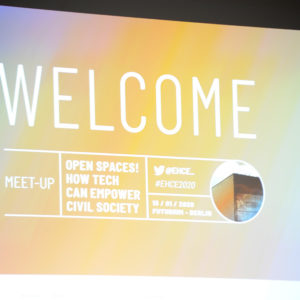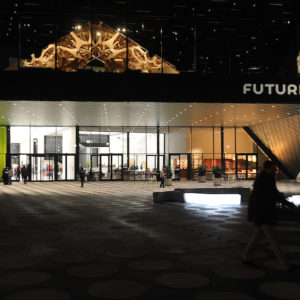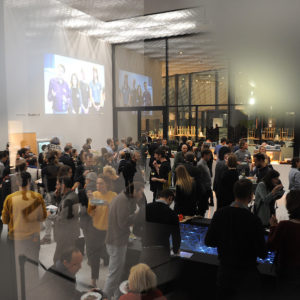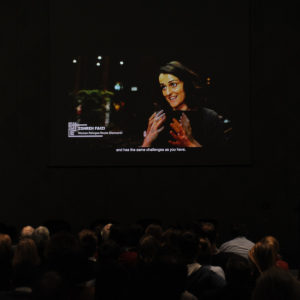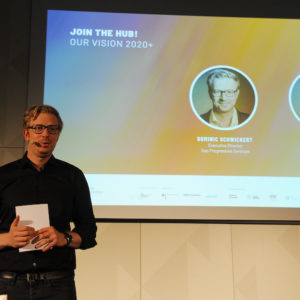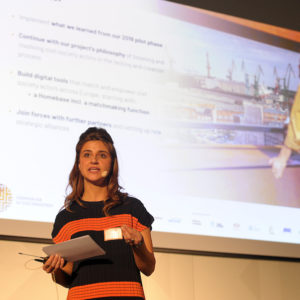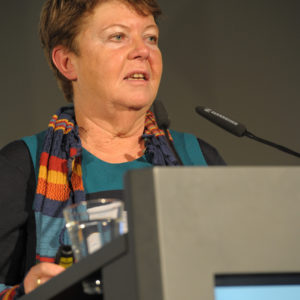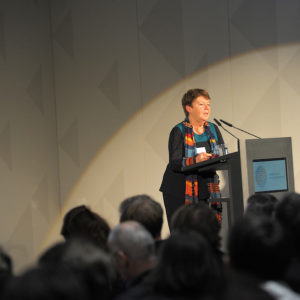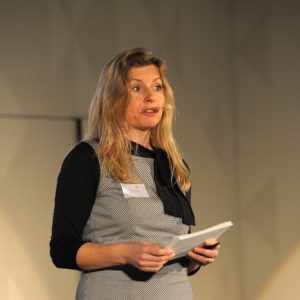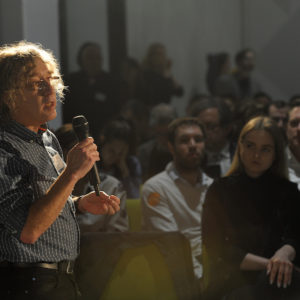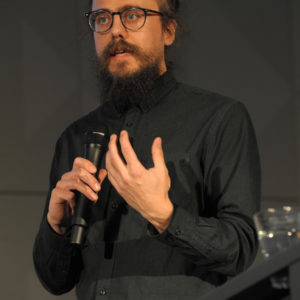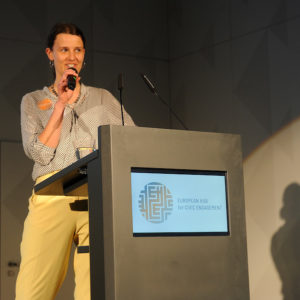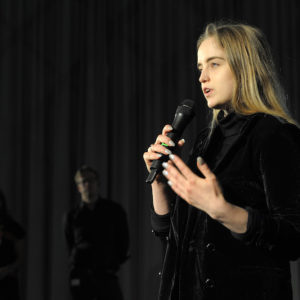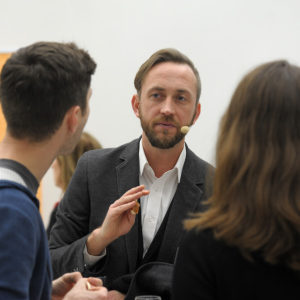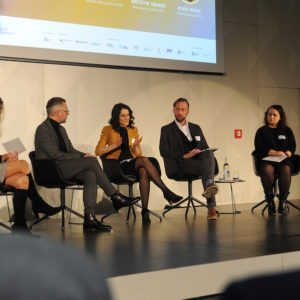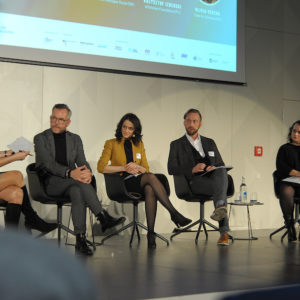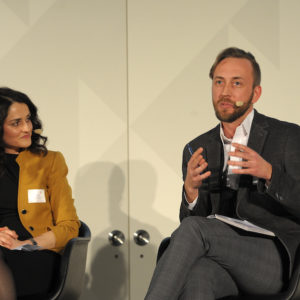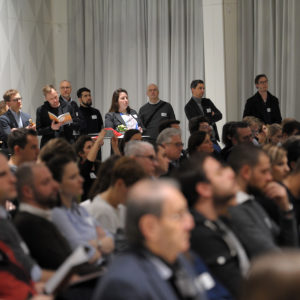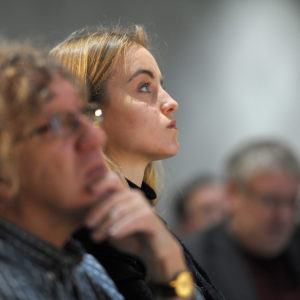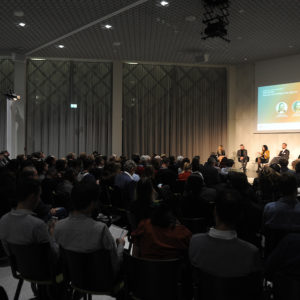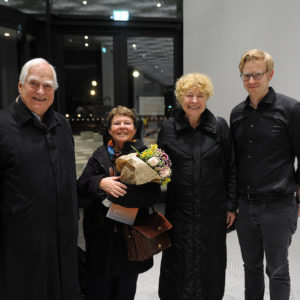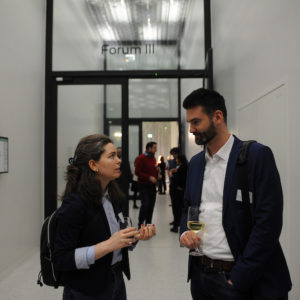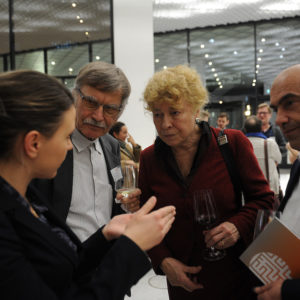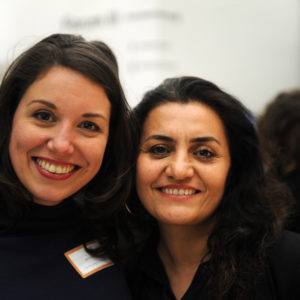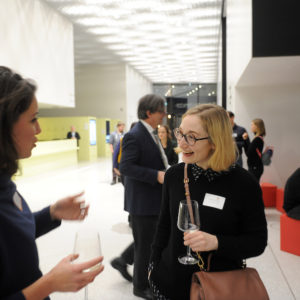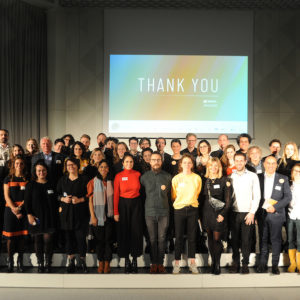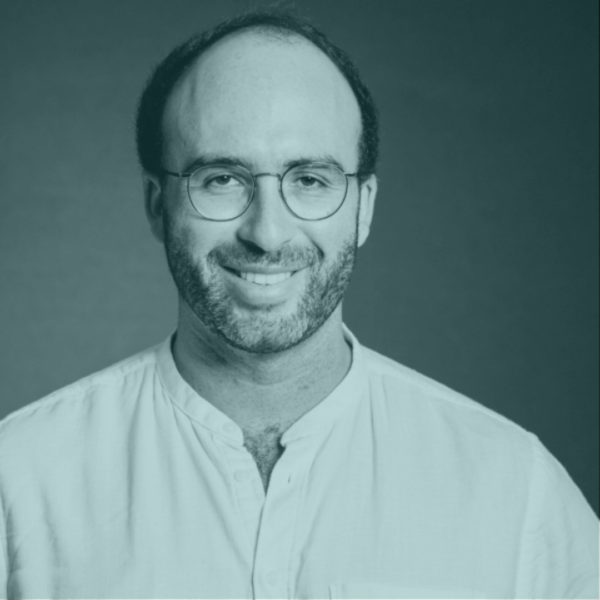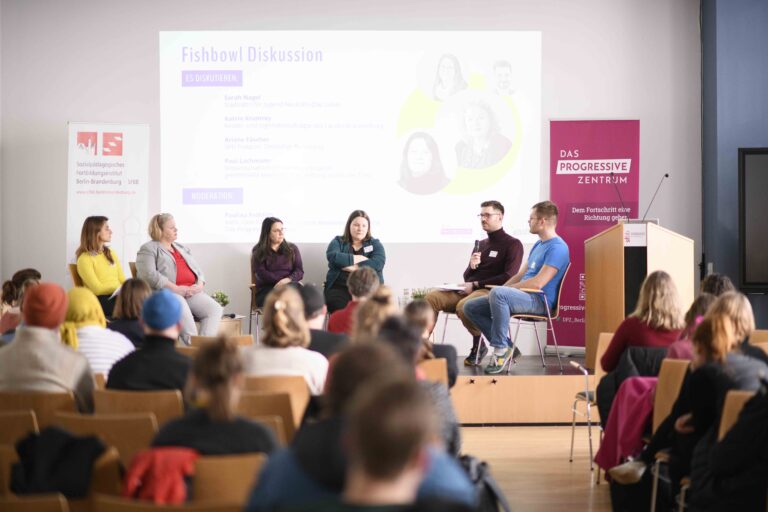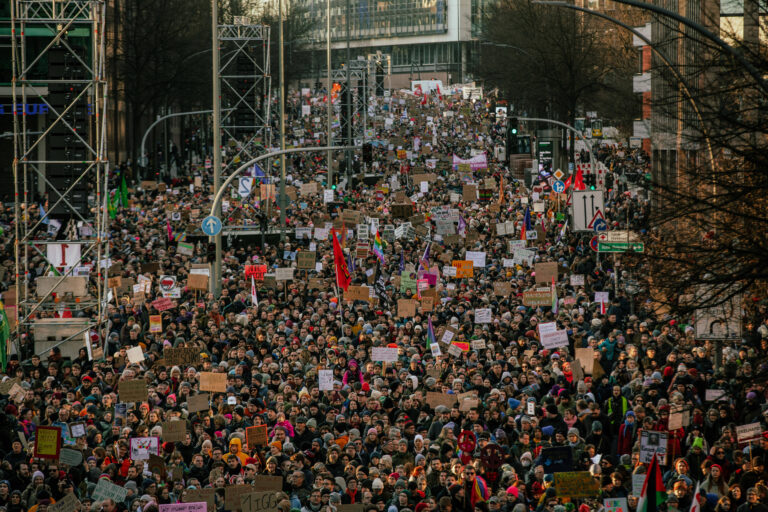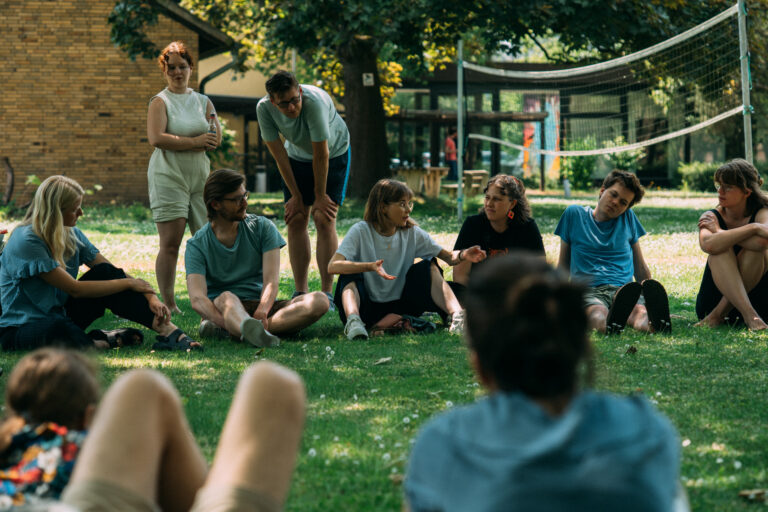Over 250 participants attended the European Hub for Civic Engagement’s Meet-up in Berlin to discuss how tech can empower civil society. Four prototypes showcased the potential of such tech solutions. However, the debate also uncovered three conditions of a successful implementation.
We are living in a moment of shrinking spaces but we are also living in moments in which resistance is organising itself and progressive forces are reorganising and acting.
This proclamation by Professor Donatella Della Porta captured the spirit of why more than 250 actors working with civil society and civic tech from around Europe met on a brisk Monday evening in Berlin. Gathered at the European Hub for Civic Engagement’s ‘Open Spaces! How Tech Can Empower Civil Society’, they discussed the importance of networks, solidarity, and sustainability, when working on strengthening European civil society with tech.
The visual highlight of the evening was the European Hub for Civic Engagement’s presentation of four digital prototypes that address building community, turning ideas into impactful projects, making funding more accessible, and providing resources by matching civic actors across Europe.
A networked civil society for Europe
Opening his remarks with “it’s the civil society, stupid”, State Minister Michael Roth made the case for a networked European civil society based on common values. He argued for the urgency of creating common values anecdotally with “the Hungarian State has a completely different interpretation (of common values)”, which in turn can create difficulties in establishing a common network of civil society actors from across Europe. He continued by emphasising that “there is not any space for different interpretations of common values” and called for collaboration between civil society and European Union institutions. As a solution, State Minister Roth firmly advocated for a European Union Fund that supports civil society actors.
Prominent civil society actors and programmers also agreed on the need of building networks. Zohreh Faizi, an immigration lawyer, called for collaboration: “These days, instead of cooperation with each other and sharing ideas and resources, NGO’s compete with each other. And that’s because we have such limited funds available. So we end up competing rather than sharing our information and working towards the same goal”. She stressed that since many civil society organisations are volunteer based, there is simply not enough time to focus on collaboration. Tech could provide NGOs with the networks for collaboration that they normally do not have enough time or resources to attain.
Olivia Vereha echoed the need for collaborative networks built on tech solutions. As a programmer, she has experienced first-hand how open source tools can be built for multiple contexts, citing how she had developed an app for citizens to get information from the Romanian parliament and how that was easily transferred to Poland, as well. Furthermore, Olivia Vereha was a firm believer in how coding can empower networks through diversification “we can all code. It doesn’t matter where you are. Coding is a universal language. Everybody can do it, everybody can contribute. Civic tech built up a huge potential for people to contribute their ideas where no one ever could contribute what they had to say before.”
Are you ready to contribute?
Solidarity as the foundation of civil society
Keynote speaker Donatella Della Porta argued for the creation of civil society networks based on solidarity to combat shrinking spaces across Europe. The Professor of Political Science argued that solidarity should be the foundation of networks. To her, solidarity is necessary for the civic resistance to authoritarian trends to become organised and efficient, summed up by: “what one needs to do is to insist on a definition of civil society that is related to the very idea of solidarity.”
Civic tech must encourage sustainability
On the tips of all the participants tongues was sustainability. Krzysztof Izdebski formulated the concerns of many: “the true challenge is not to create it, but to make it sustainable – now we get into the real work. Constructive and long lasting”.
Paulina Fröhlich, Head of Programme for Future of Democracy at Das Progressive Zentrum, openly called for candid input with “come challenge us with your feedback and critical thoughts”. Honest reflection and open communication between civic and tech actors was viewed as quintessential to building sustainable and impactful networks.
European civil society: staying optimistic in trying times
Paulina Fröhlich also outlined how there has been an overall shift in the democratic landscape and a rise in authoritarian nationalism empowered by false arguments of security in Europe. This has led to a growing hostile environment for civil society organisations, Paulina argued, resulting in the need for active engagement: “as a think and do tank, it was time that Das Progressive Zentrum put more emphasis on the ‘do’ part of the work” as “we now more than ever need open spaces for civil society to work critically and cooperatively”. Paulina continued by calling for open spaces to be created with the help of civic tech, particularly because of how digital solutions can cross geographical borders and match people to ideas, funds, and other organisations.
Even under the shadow of shrinking spaces, a consensus was formed throughout the evening around remaining optimistic. Through focusing on creating networks, building solidarity, and working sustainably, there is the opportunity to overcome threats to our common democratic values. The Chairman of the Hungarian Europe Society István Hegedűs highlighted this by stating: recent municipal elections in Hungary show that with “opposition-made politics, there is hope, there is a future”.
The Open Spaces! How Tech Can Empower Civil Society meet-up was attended by over 250 participants at Futurium, in Germany’s capital Berlin. There, the European Hub for Civic Engagement presented the results from the 2019 pilot phase and it’s vision for 2020, and beyond. The evening was interactive, with a keynote speech, panelists, presentations from the prototype creators, and an interactive digital tool that allowed the audience to participate in polls and submit questions for the panelists.
Pictures of the European Hub for Civic Engagement Meet-Up
